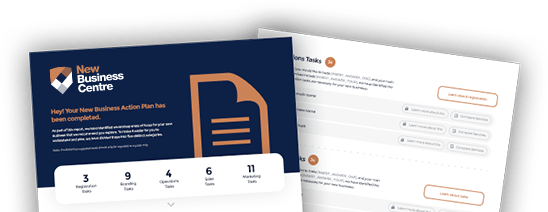In our fast-paced digital age, it’s essential for businesses to stay connected with their customers and tap into the world of online opportunities.
Enter digital marketing, the game-changing approach that has revolutionized the way businesses reach, engage, and convert their target audience.
In this article, we’ll delve into what digital marketing is in 2023, from its definition to its importance and everything digital marketers offer to businesses.
What is Digital Marketing?
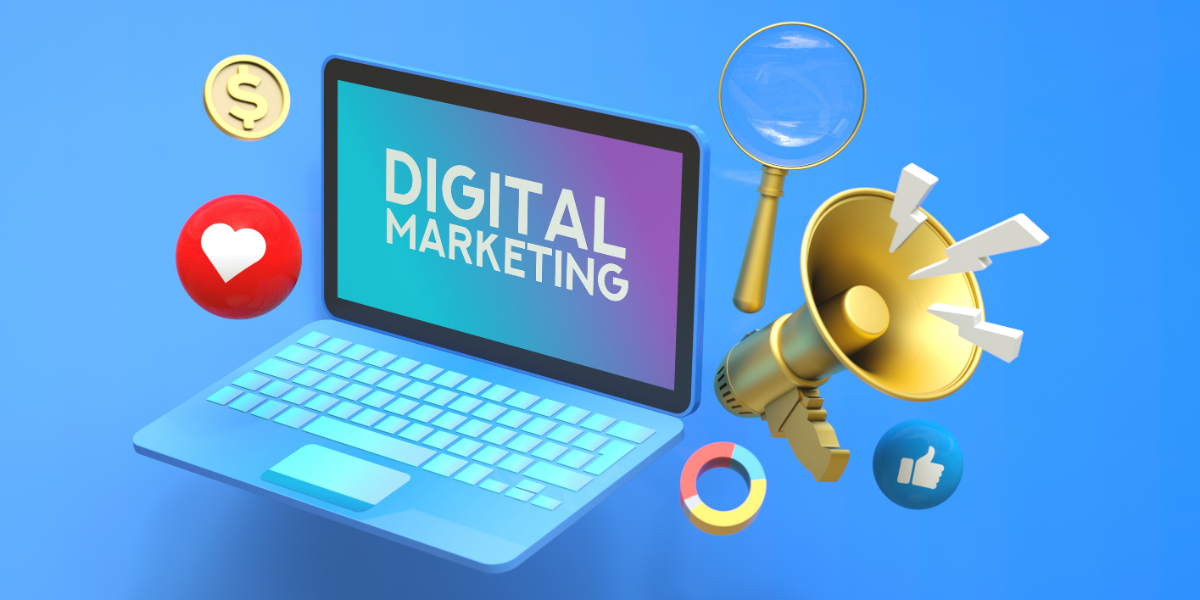
Digital marketing is using various online channels and platforms to promote a brand, product, or service, ultimately aiming to connect with potential customers and drive sales.
It encompasses various strategies, including search engine optimization, social media marketing, email marketing, content marketing, and more, each designed to effectively meet specific marketing objectives and reach target audiences.
Importance of digital marketing in today’s world
The importance of digital marketing in today’s world cannot be overstated. With most of the global population now using the internet and spending an increasing amount of time online, businesses have a unique opportunity to connect with potential customers like never before.
To Businesses
The unique thing that make digital marketing important is that it allows businesses to:
- Reach a larger audience: Digital marketing channels give businesses access to a global audience, enabling them to connect with potential customers far beyond their local markets.
- Gain a competitive advantage: By staying updated with the latest trends and utilizing the most effective sales funnel and digital marketing strategies, businesses can gain a competitive edge and outperform their rivals in the ever-evolving digital landscape.
- Achieve cost-effectiveness: Compared to traditional marketing methods, digital marketing is often more cost-effective and provides a higher return on investment, making it an ideal choice for businesses with limited budgets.
- Personalize marketing efforts: Digital marketing enables businesses to gather valuable data and insights about their audience, allowing them to tailor their marketing messages and target specific segments more effectively.
- Measure and analyze performance: With digital marketing, businesses can track and analyze the performance of their campaigns in real-time, making it easier to optimize and improve their strategies.
To Individuals
The digital marketing industry offers many opportunities for individuals through digital marketing jobs. Many digital marketing skills are required of digital businesses today.
Many people with a digital marketing career, whether as a digital marketing manager or content marketing specialist, usually have their place on the sales team and are usually in charge of online marketing campaigns through various digital channels.
In the sections that follow, we’ll explore the various types of digital marketing, the role of a digital marketer, different digital marketing positions, and how digital marketing can be tailored to suit different industries and business models.
So, buckle up and get ready for an exciting journey through the world of marketing in 2023!
What are the Types of Digital Marketing?
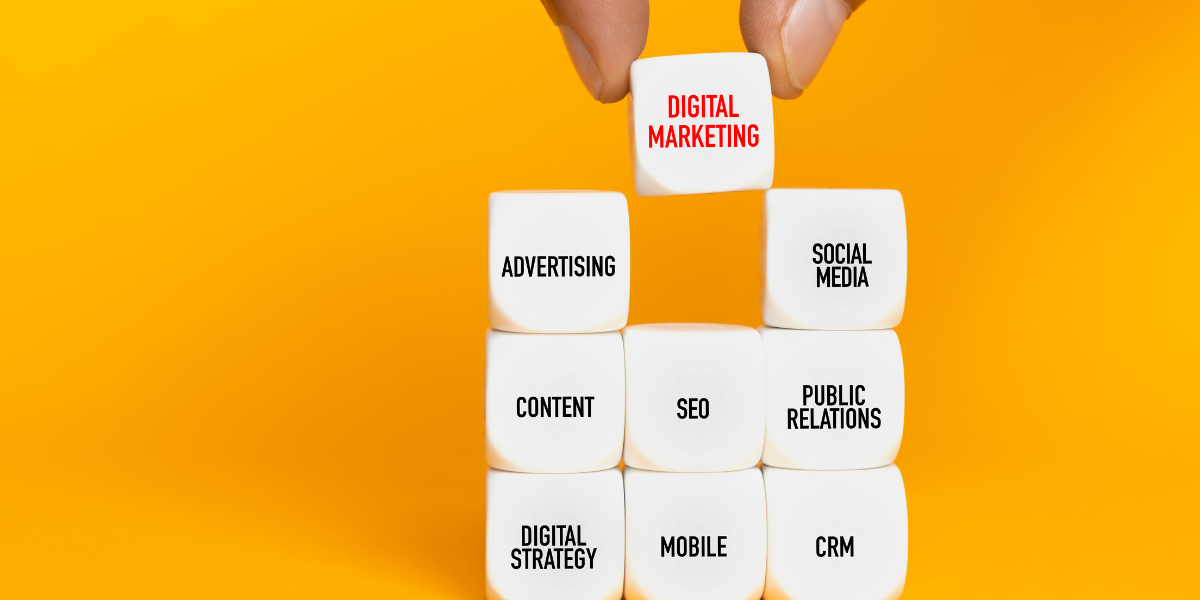
As we dive deeper into the marketing world, it’s essential to understand the diverse strategies and tactics businesses can leverage to achieve their goals. In this section, we’ll explore ten of the most popular types of digital marketing in 2023.
Content marketing
Content marketing involves creating and sharing valuable, relevant, and engaging content to attract, inform, and retain a target audience. By providing useful information that addresses the needs and interests of potential customers, businesses can build trust, establish authority, and ultimately drive sales.
Content marketing formats include blog posts, articles, whitepapers, e-books, infographics, videos, and podcasts.
Social media marketing

Social media marketing promotes a brand, product, or service across various social media platforms like Facebook, Instagram, Twitter, LinkedIn, and Pinterest.
This strategy involves creating engaging content, interacting with followers, and monitoring performance metrics to increase brand awareness, generate leads, and foster customer relationships.
Read More: 23 Top Benefits of Social Media For Your Business (Full Guide)
Search engine optimization (SEO)

SEO is the practice of optimizing websites and their content to rank higher in search engine results pages (SERPs). By improving their visibility on search engines like Google and Bing, businesses can drive organic (non-paid) traffic to their own website.
Search Engine Optimization SEO strategies include keyword research, on-page optimization, technical SEO, and off-page optimization, such as link building and content promotion.
Search engine marketing (SEM)
Search engine marketing is a marketing strategy that involves executing a business marketing campaign using paid advertisements that appear on search engine result pages (SERPS).
This is an effective digital marketing strategy used to increase the visibility of a business on SERPS. It is also used for lead generation and to drive website traffic to a landing page. The website visitors are then kept interested with a unique content marketing strategy specifically designed for the web pages.
All the digital marketer has to do is pay for the advertisement, and the search engines will see to the rest. And it will be carried out with respect to the digital marketing campaign budget.
Email marketing
Email marketing is the practice of sending targeted and personalized messages to a group of subscribers via email. By nurturing relationships with their audience, businesses can promote their products or services, share news, and drive customer engagement.
Influencer marketing
Influencer marketing leverages the power of social media influencers – individuals with digital marketing skills, a significant following, and strong influence over their audience – to promote products or services. These influencers make use of social media posts on digital channels where their influence lies to drive engagement and sales for your business for a fee.
Businesses can tap into their loyal audience and gain credibility by partnering with influencers whose values align with their brand.
Affiliate marketing

Affiliate marketing is a performance-based digital marketing strategy where businesses partner with affiliates (individuals or other companies) to promote their products or services. Affiliates earn a commission for each sale or lead they generate through their unique referral links or promotional efforts.
Native advertising
Native advertising is a digital marketing tactic that involves placing promotional content in the context of the user’s experience, often resembling the surrounding editorial content, across digital channels. This form of advertising can be found in online articles, social media feeds, and sponsored content on platforms like Taboola or Outbrain.
Marketing automation
Marketing automation refers to using software and technology to streamline, automate, and measure marketing tasks, such as email campaigns, social media posting, and lead nurturing.
This digital strategy helps businesses save time, increase efficiency, and improve their marketing efforts.
Understanding these various types of marketing strategies can help businesses determine the best approach to adopt in their marketing campaign to achieve their specific goals and reach their target audience most effectively.
The Role of a Digital Marketer?
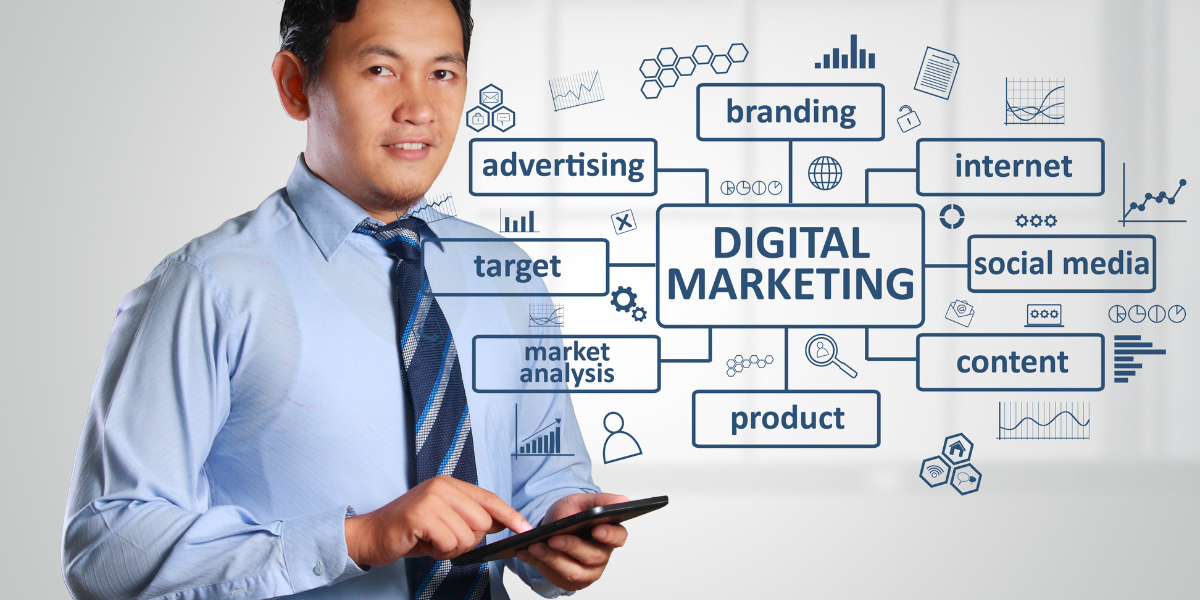
Digital marketers are responsible for creating and executing marketing strategies to drive brand awareness, engage target audiences, and generate leads or sales. Their tasks include:
- Developing and implementing digital marketing campaigns across multiple channels, such as social media, email, and content marketing.
- Analyzing and optimizing campaigns to improve performance and ROI.
- Conducting keyword research to optimize SEO and drive organic traffic.
- Creating and managing paid advertising campaigns on platforms like Google Ads and Facebook Ads.
- Collaborating with designers and content creators to develop compelling marketing materials.
- Monitoring and reporting on the performance of digital marketing efforts using tools like Google Analytics.
- Staying updated on the latest digital marketing trends and best practices to maintain a competitive edge.
To excel in the field of digital marketing, professionals need a combination of technical and soft digital marketing skills, including:
- Strong understanding of SEO, PPC, and social media marketing principles.
- Proficiency in using digital marketing tools and platforms, such as Google Analytics, Google Ads, and Facebook Ads Manager.
- Excellent copywriting and content creation abilities.
- Analytical and data-driven mindset to evaluate campaign performance and make data-driven decisions.
- Ability to adapt to new technologies and marketing trends quickly.
- Strong project management skills to oversee multiple campaigns simultaneously.
- Effective communication and collaboration abilities to work with cross-functional teams.
Inbound vs. Digital Marketing
Differences and similarities
Inbound marketing is a specific subset of digital marketing that focuses on attracting customers by providing valuable content and experiences tailored to their needs and preferences.
It involves creating and sharing engaging content, such as blog posts, videos, and social media updates, to draw potential customers toward your brand.
Digital marketing, on the other hand, is a broader term that encompasses all online marketing efforts, including inbound marketing and other tactics like PPC advertising, email marketing, and affiliate marketing.
Inbound marketing vs. digital marketing? 🤔
Inbound is a strategy that uses digital assets to attract & retain customers, while digital marketing channels are used to deliver inbound marketing content to consumers 👇 https://t.co/sT2SYgZsqA. pic.twitter.com/RLWDVGGUUW
— Semrush (@semrush) January 10, 2023
How do they complement each other?
Both complement each other in several ways:
Inbound marketing lays the foundation for building long-term customer relationships by offering value through content and personalized experiences. Digital marketing encompasses these inbound tactics while also incorporating additional strategies, such as PPC and email marketing, to reach wider audiences and drive immediate results.
By combining inbound marketing’s focus on creating engaging content with the broader reach of marketing channels, businesses can attract and nurture leads more effectively, increasing the likelihood of conversion.
The data-driven nature of digital marketing allows digital marketers to refine their inbound strategies by analyzing user behavior, identifying patterns, and optimizing content to better address the target audience’s needs and preferences.
In summary, while they both have their differences, they work hand in hand to create a comprehensive, effective marketing strategy that builds brand awareness, drives engagement, and generates leads or sales.
Digital Marketing for B2B vs. B2C

Distinct strategies for each market
Strategies differ for B2B (business-to-business) and B2C (business-to-consumer) markets, as their target audiences, goals, and decision-making processes are unique.
For B2B businesses, the aim is to build long-term relationships with other businesses. It often focuses on providing valuable content, nurturing leads, and demonstrating industry expertise.
LinkedIn, for example, is a popular platform for B2B marketing, as it facilitates professional networking and targeted content sharing.
On the other hand, B2C businesses target individual consumers, aiming to create an emotional connection and showcase their products or services’ immediate benefits.
B2C marketing strategies often use visually appealing content, storytelling, and promotions to drive quick purchasing decisions. Social media platforms like Instagram, Facebook, and TikTok are common choices for B2C marketing efforts.
Key differences and similarities
Differences:
Sales Cycle: B2B marketing usually involves longer sales cycles, as business purchases require more decision-makers, budget considerations, and evaluation. B2C marketing has shorter sales cycles, as consumers generally make quicker decisions.
Content: B2B content is more informational and focused on showcasing expertise, while B2C content emphasizes the emotional appeal and user experience.
Channels: B2B marketing often relies on LinkedIn, webinars, and industry events, while B2C marketing utilizes platforms like Instagram, Facebook, and TikTok.
Similarities:
Personalization: Both B2B and B2C marketing benefit from personalized messaging that resonates with the target audience.
Data-driven decisions: In both cases, businesses should use data to optimize their marketing efforts and track performance.
Focus on value: Whether targeting businesses or consumers, successful digital marketing techniques showcase the value of the product or service being offered.
What Types of Businesses will Digital Marketing Work For?
Case studies and examples
B2B – Salesforce: Salesforce, a leading CRM software provider, uses content marketing, webinars, and social media to educate potential customers and position themselves as industry experts. Their successful marketing strategies have helped them grow into a multi-billion-dollar company.
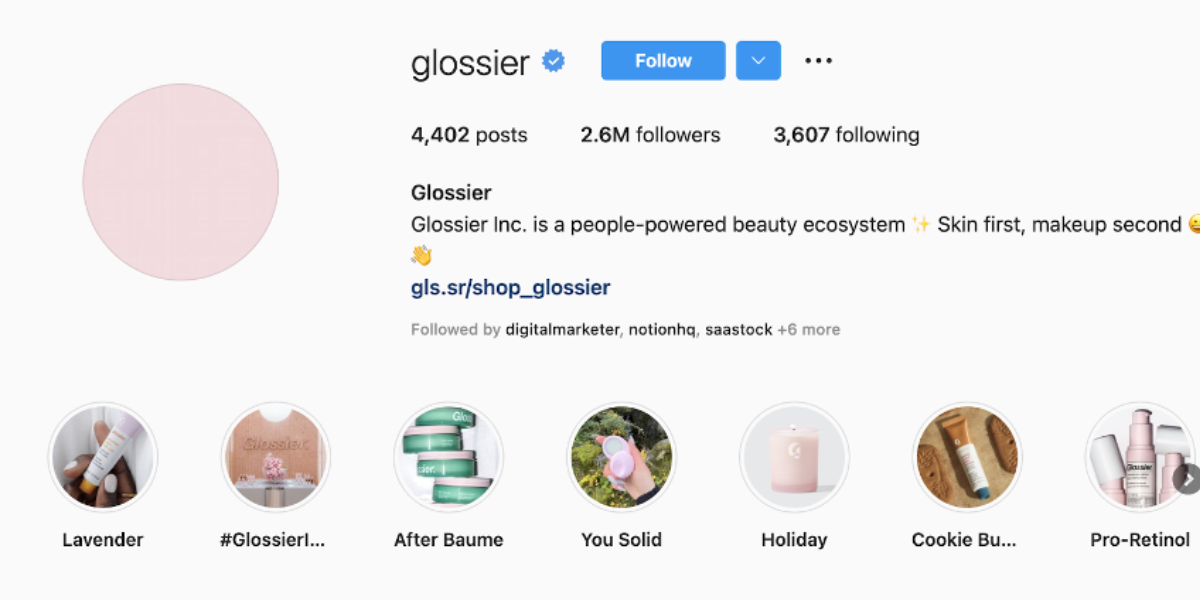
B2C – Glossier: Beauty brand Glossier built its success through Instagram marketing, leveraging user-generated content and influencer partnerships to create a loyal customer base. By focusing on their target audience and utilizing social media effectively, Glossier has become a major player in the cosmetics industry.
These examples demonstrate that digital marketing when tailored to the specific needs of a business and its target audience, can drive growth and success across a wide range of industries.
How to Do Digital Marketing
Best practices and tips
To excel as digital marketers, business owners should follow these best practices:
- Set clear goals: Establish specific, measurable, attainable, relevant, and time-bound (SMART) objectives to guide your marketing strategy.
- Know your audience: Understand your target customers’ demographics, preferences, and pain points to create content that resonates with them.
- Optimize your website: Ensure your website is user-friendly, mobile-responsive, and optimized for search engines to increase visibility and conversions.
- Create high-quality content: Offer valuable, engaging, and shareable content that showcases your expertise and addresses your audience’s needs.
- Use a mix of marketing channels: Leverage multiple digital marketing channels, such as social media, email, and paid advertising, to reach your audience effectively.
- Engage with your audience: Build relationships and encourage two-way communication by responding to comments and questions and actively participating in relevant online communities.
- Test and refine: Continuously monitor your marketing efforts’ performance and adjust your strategy based on data insights.
Importance of data-driven strategies
Data-driven digital marketing strategies help businesses:
- Identify trends: Analyzing data helps uncover patterns in consumer behavior, allowing you to adapt your strategy accordingly.
- Allocate resources efficiently: By focusing on channels and tactics that yield the best results, you can optimize your marketing budget.
- Personalize content: Data insights enable you to create tailored content that resonates with your audience, increasing engagement and conversions.
- Measure success: Tracking key performance indicators (KPIs) allows you to evaluate your marketing efforts’ effectiveness and adjust your strategy as needed.
Adapting to new trends and technologies

Embracing emerging trends and technologies, such as AI-powered tools like ChatGPT, can help businesses improve their digital marketing efforts, engage with customers more effectively, and provide personalized experiences.
By staying ahead of the curve, companies can ensure they remain competitive in the ever-evolving digital landscape. Business owners should:
- Stay informed: Regularly research industry news, blogs, and reports to stay updated on emerging trends and best practices.
- Be open to change: Embrace new marketing channels, tools, and techniques to stay competitive and reach your target audience effectively.
- Experiment and learn: Test new strategies and learn from your successes and failures to continuously improve your digital marketing efforts.
- Invest in education: Encourage your marketing team to participate in training, workshops, and conferences to stay updated on the latest trends and technologies.
By following best practices, leveraging data-driven strategies, and adapting to new trends, businesses can enhance their digital marketing efforts and achieve greater success.
Examples of Digital Marketing
Successful campaigns and strategies

Spotify’s “Wrapped” campaign: Spotify’s annual “Wrapped” campaign is a data-driven digital marketing strategy that creates personalized summaries of users’ listening habits, providing valuable insight into the customers’ preferences.
This campaign drives user engagement and promotes sharing on social media channels, boosting brand awareness. It is a brilliant strategy as it leverages on existing customers to get new customers interested without having to run digital ads.

Airbnb’s “Live There” campaign used social media, influencer marketing, and content marketing to encourage travelers to experience destinations like locals. The campaign resonated with their target audience and helped Airbnb stand out in the travel industry.
Lessons learned from real-world examples
- Be authentic and relatable: Successful digital marketing campaigns often connect with audiences on a deeper level by addressing their needs, values, and emotions.
- Leverage data and personalization: Using data to personalize content and create targeted marketing campaigns can lead to higher engagement and better results.
- Collaborate with influencers: Partnering with influencers in your industry can help amplify your message, reach new audiences, and build trust with potential customers.
- Create shareable content: Design campaigns that encourage social sharing to expand your reach and generate organic buzz around your brand.
These real-world examples illustrate the potential of digital marketing to create memorable, engaging campaigns that resonate with audiences and drive tangible results for businesses.
If you’re ready to start taking advantage of digital marketing for your business’s success, sign up for free access to our DIY New Business Pack today. Compare different marketing tools for your new business.
